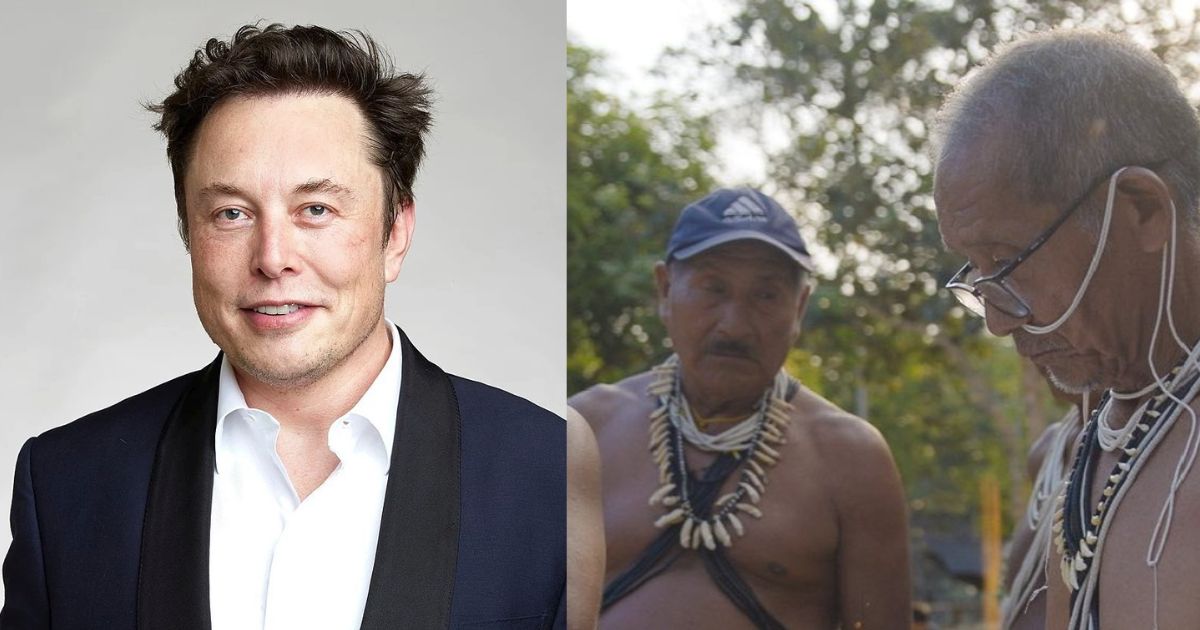Elon Musk’s Starlink has been linked to a defamation lawsuit filed by the Marubo Tribe. Starlink was responsible for providing the tribe with high-speed internet. Here’s how this chain of events led to a defamation lawsuit.
Starlink is an international telecommunication provider that is owned by Elon Musk. Starlink’s service has enabled the Brazilian tribe of 2000 people to stay connected with their relatives and even access emergency assistance sooner. The Mirror reports that the tribal people can be reached by medical helicopters within hours instead of days.
The New York Times wrote an article covering the negative impact that the technological advancement has had on the tribe. In the article, the publication claimed that access to high-speed internet was “making people hooked on graphic p-rn and spending hours on social media.”
The publication alleged that the teenagers in the tribe were “glued” to their cellphones. They added that their group chats were “full of gossip; addictive social networks; online strangers; violent video games; scams; misinformation, and minors watching p-rnography.”
The New York Times story “portrayed the Marubo people as a community unable to handle basic exposure to the internet.” The article reported how a leader of the tribe was worried about the growing problem. Allegedly, the leader was concerned about teenagers exchanging explicit content since they got access to Starlink’s high-speed internet.
TMZ also reported on the matter and even released a video regarding the same. A report from the publication was titled, “Elon Musk’s Starlink Hookup Leaves A Remote Tribe Addicted To P-rn.”
NEWS: Amazonian tribe that received @Starlink satellite internet cries foul over NY Times story…
The Marubo Tribe of the Javari Valley sued The New York Times and TMZ for defamation, following a flurry of news stories about the sudden effects of satellite internet had on the… pic.twitter.com/bwaIOdmMzM
— Brian Basson (@BassonBrain) May 22, 2025
The Marubo Tribe filed a defamation suit against the New York Times on Thursday. The tribe that filed the lawsuit in the Los Angeles Court are is seeking $180 million in damages, as per BBC.
The tribe referenced the story and said that the publication’s claims were “inflammatory.” They “conveyed to the average reader that the Marubo people had descended into moral and social decline as a direct result of internet access.”
The lawsuit pointed out how the article’s portrayal of the tribe goes “far beyond cultural commentary.’” The lawsuit also notes how the publication attacked the “character, morality, and social standing of an entire people.” The New York Times was also accused of suggesting that the Marubo people lack “discipline or values to function in the modern world.”
🇧🇷REMOTE TRIBE SUES NYT: “WE’RE NOT PORN ADDICTS, WE’RE MODERN”
In a real-life courtroom drama, the Marubo tribe from Brazil’s Amazon is demanding $180 million from the New York Times, TMZ, and Yahoo.
Why?
A 2024 article by Jack Nicas claimed teens in their once-remote… pic.twitter.com/CFCPlPfC7p
— Alex Kennedy (@AlexkennedyIran) May 25, 2025
The lawsuit also notes how the article is portraying the tribe wrongly by making it seem like they have “descended into moral collapse.” The publication was accused of being responsible for destroying “lives, institutions, and culturally significant projects.”
A New York Times spokesperson has addressed the situation while sharing the publication’s intent to defend “vigorously” against the defamation lawsuit. “Any fair reading of this piece shows a sensitive and nuanced exploration of the benefits and complications of new technology in a remote Indigenous village with a proud history and preserved culture,” the spokesperson noted.













